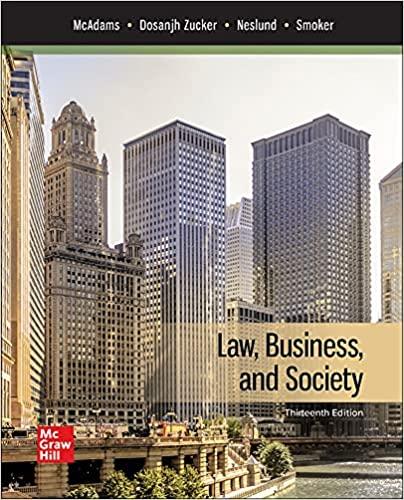In 1992 Congress enacted the Professional and Amateur Sports Protection Act (PASPA), which made it unlawful for
Question:
In 1992 Congress enacted the Professional and Amateur Sports Protection Act (PASPA), which made it unlawful for a State or any of its subdivisions “to sponsor, operate, advertise, promote, license, or authorize by law or compact . . . a lottery, sweepstakes, or other betting, gambling, or wagering scheme based . . . on competitive sporting events.” However, it expressly exempted the small number of states which had already legalized such activities. In 2012, after a statewide referendum to allow sports betting passed overwhelmingly, the New Jersey legislature enacted a law legalizing it. The state was sued by sports leagues and the NCAA. It lost when the Third Circuit ruled that PAPSA was a constitutional preemption of New Jersey’s attempt to legalize in-state sports betting. The Supreme Court denied New Jersey’s request for its review. New Jersey tried again in 2014 to permit in-state betting on sporting events at its casinos and horse-racing tracks, this time by amending an existing state statute (rather than passing a new law).
Questions
1. Look back at the “Law and the Market” discussion at the beginning of Chapter 4. What, if anything, do those examples indicate about the rule of law in the United States? Explain.
2. PASPA, discussed above, banned sports betting, but only selectively, allowing states with then-existing laws permitting such gambling to continue. If the motive for PASPA was a concern for public welfare or public morals, how could a carve-out for existing betting be justified? Explain.
3. What is the difference between preemption and commandeering according to the Supreme Court in Murphy v. NCAA, mentioned above?
4. As a nation, should we be concerned that Congress has passed a comprehensive law intended to control access to, and the use of, a broad range of drugs that is being publicly ignored or avoided by all branches and levels of our government, as illustrated in the list below? Explain. In so doing, focus on the functioning of our constitutional structure, not on the substantive merits of legalizing or criminalizing marijuana use.
• Thirty-three states have passed laws in direct opposition to the CSA.
• The Supreme Court has refused to hear, and redress if appropriate, claims of harm inflicted on neighboring states by the actions of states legalizing recreational use.
• Congress itself has undermined its own law by repeatedly reauthorizing the Rohrabacher-Farr Amendment.
5. Consider the two issues discussed above: betting on competitive sports events and legalizing recreational marijuana use. Why are they causing our legal system so many problems? Explain.
6. Reconsider Question 5 in light of two common phrases:
• “A government of the people, for the people, by the people,” from President Lincoln’s Gettysburg address, and
• “A government of the many for the few,” which is essentially a definition of an oligarchy (a government in which all power is vested in a few people or a dominant class).
Step by Step Answer:

Law Business And Society
ISBN: 9781260247794
13th Edition
Authors: Tony McAdams, Kiren Dosanjh Zucker, Kristofer Neslund, Kari Smoker





